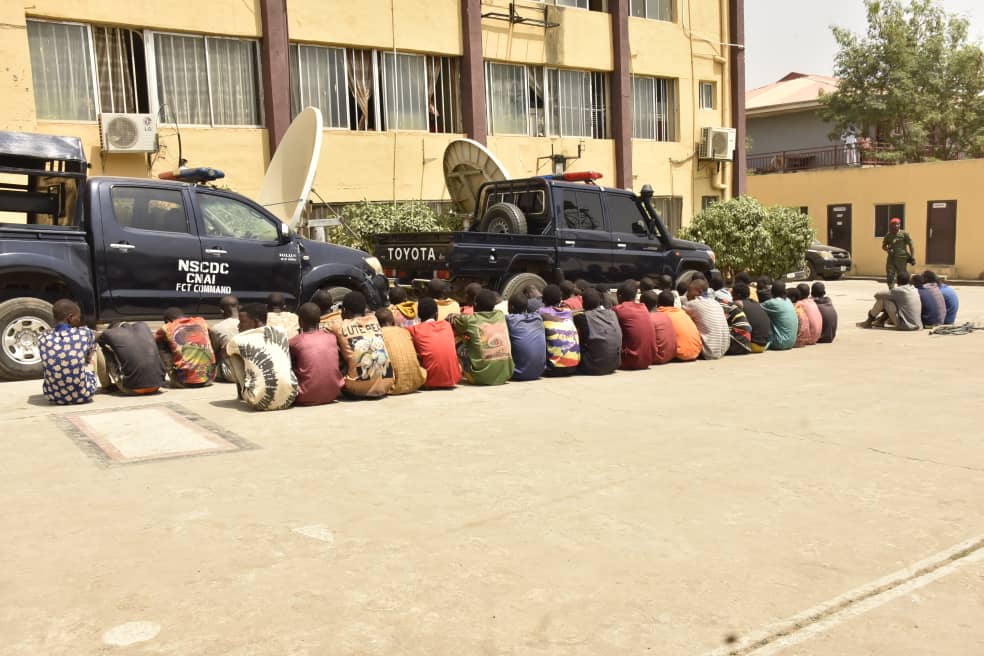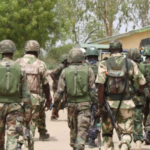Last Friday, the Minister of Information and National Orientation, Mohammed Idris, was reported as appealing to journalists to not give “undue attention” to bandits and other criminals terrorising the country. He reminded journalists that “bandits, terrorists, kidnappers and pirates are waging not only a physical battle, but also a psychological war to undermine the morale of the Nigerian military.”
I think the minister is on to something serious here, but let me begin elsewhere. In media theory, some of the most profound questions regard the relationship between the news, the media and journalists all on one hand, and the state, the government and politicians or political leaders on the other. The received wisdom on this question is the Western style liberalist perspective which holds that the media should take an adversarial stance against the state in order to hold the government accountable and safeguard the rights of citizens.
This view came from the democratic theory which believes that publicity and openness are the surest guarantees against the corrupting influence of power. If power corrupts and absolute power corrupts absolutely, as one thinker put it long ago, how should we hold it in check in order to protect the rights and freedom of the citizens? This is one of the oldest questions in democratic theory and practice and remains as valid today as when it was first posed in the 17th Century. One answer was to lay bare the exercise of power; a role ascribed to the press, in addition to checks and balances of state institutions. This is the so-called Fourth Estate thesis which became enshrined, first in the Swedish and American constitutions in the 18th Century, and now in the constitutions of most countries of the world; Western or not.
For the most part, in the Western countries of its origin, this view of the press as a shield of the people and an adversary to the state works very well. But there is a nuance to it. There is as much a fine line between the state, government and political leaders on the one hand, as there is between the news, the media and the individual journalist or media organisations. This is where a lot about this view is lost in translation. Western media and journalists understand these fine lines. When an issue pertains to an individual politician or a particular government, the media goes all out in full throttle to do its job of holding power to account. But when the issue pertains the state itself, as distinct from the government of the day, such as an existential threat or a challenge to the dominant ideologies of democracy and capitalism, or even of rivalries between states in international affairs, the media will adopt subtle, sometimes not so subtle, approaches to doing news in ways that stand by the state.
- How to make Nigerians patronise locally-made goods — Oba of Benin
- Plateau Assembly crisis: New twist as 13 LP candidates seek fresh election
You will struggle to find “balance” or “fairness” in mainstream American media reporting about China or Russia.
In fact, as I write this, most Western media are at pains to show that the unfortunate terrorist attacks in Moscow on Friday night were carried out by an affiliate of ISIS, citing unnamed “US intelligence officials” or “claim of responsibility” by the little-known ISIS-K. Meanwhile, Russian authorities and media are linking the attack to Ukraine. The average citizen in the West or Russia may never know the truth of this incident because the media on each side is simply standing by their government in a crisis of this magnitude.
Consider also Western media coverage of the Russia-Ukraine war more broadly and you will not fail to see how they are doing news in support of one side in a conflict of many sides. There is a reason they call it “Putin’s War”; and this is not to mention Gaza. Consider also American media coverage of the US 2020 presidential election and you will not fail to see that the reporting stood, not necessarily on the side of Joe Biden, but on the side of the election and democracy against a candidate and president who would rather bring the whole country down.
Nigerian journalists and media do not fully understand this fine line between the state and government in their adversarial perspective to the news. Too often, they throw the baby away with the bathwater and the whole country loses.
Consider first, Nigeria’s 2023 general elections, which going by the evidence should count among the best we ever had. Nobody in this country has presented enough evidence that significantly challenges the results of the elections as declared by INEC; then or now. Yet, rather than stand by Nigeria’s still fledgling democracy and upholding the integrity of the elections regardless of the winners or losers, the mainstream media followed the mob on Twitter and amplified the views of those who stood to gain by castigating the elections even without evidence. Thus, a fine election has been rubbished in the eyes of the world by our reporting of it rather than by what truly happened.
That is only one example. Almost all the coups in this country were celebrated by our newspapers; a contradiction for a press that proclaims itself a champion of democracy. Worse, dominant Nigerian media coverage of IPOB and Nnamdi Kanu has generally been supportive of his destabilising activities against the Nigerian state, as was media coverage of militancy in the Niger Delta before IPOB.
In fact, you can say that the Nigerian media actually strengthened the militants and IPOB, and correspondingly weakened the Nigerian state in its dealings with those entities. It also supported Ganiyu Adams (“Chief” Ganiyu Adams; as Nnamdi Kanu is called “Mazi Kanu”) and his OPC touts as it now does for Sunday Igboho (also “chief”) and all the other merchants of destabilisation.
For different reasons and in different ways, media coverage of Boko Haram and the bandits have been similarly destabilising of the Nigerian state. In short, the media approach to doing news on conflict and organised crime in Nigeria has tended to make things worse by generally helping to weaken state response to those issues.
No one in American or any Western media will do these sorts of things for you. However, it is not always the fault of the media in Nigeria. The Nigerian state itself has yet to learn sophisticated and most effective techniques of media and public management. Official response to media during conflicts or tense situations such as switching off the phone in such moments also makes things worse.
Still, I think the minister has a point, especially when he pointed to the psychological dimension. Banditry is as much a physical violence on victims as it is a psychological violence on all of us. Bandits are master manipulators of public emotion.
First, bandits make sure they include girls, women and children among their captives, then they demand impossible sums as ransom, and then they make sure the whole world knows about the abductions and the demands. This raises the stakes by arm-twisting and boxing all of us into a corner. But it could also limit the operating room for the security agencies in real time, assuming the agencies want to do the right thing in the first place.
So, how should the media report bandits’ activities? For an answer, you may have to attend my journalism training class, but I am sure there are nuanced ways to do news of this kind that will serve both the public interest and the interest of the state; where the state also really means business.




